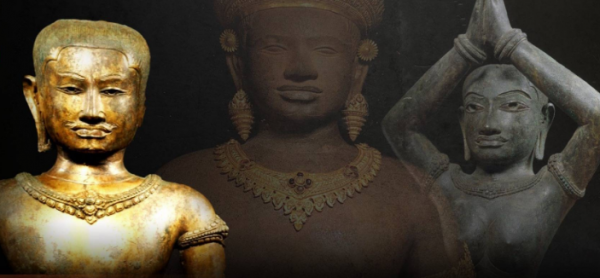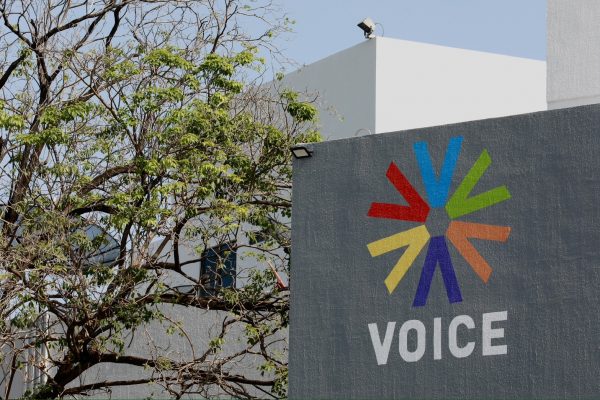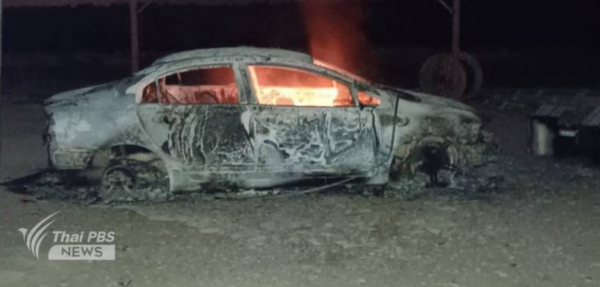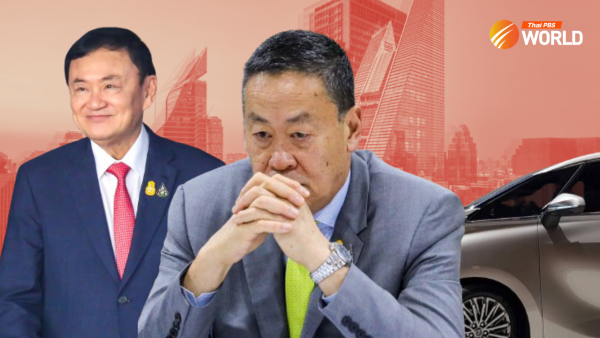Families, society divided as sensitive issue brought into open

With Thailand still battered and bruised by the impact of COVID-19, another storm is brewing on the horizon.
Protesters’ loud and unprecedented calls for reform of the monarchy are dividing families and pushing the country towards potentially violent deadlock, observers warn.
The student-led protests began in late February but on August 10 broke a historical taboo by declaring a 10-point manifesto on the monarchy. The 10 demands include removing Article 112 on lese majeste from the penal code and scrapping the Privy Council, which advises HM the King.
Royalists, government supporters and security officials slammed protesters for “crossing the line” and dragging the hallowed royal institution into politics. Opposition to the protesters is growing, as social media boils over with heated debate and counter-protests take to the street.
Eakpant Pindavanija, acting director of Mahidol University’s Institute of Human Rights and Peace Studies, was surprised to see the anti-government protesters extend their criticism to the sovereign institution of Thailand’s political, social and administrative life. He said it was difficult to say, however, if they had actually “crossed the line”.
He said the monarchy is normally seen as an institution that interacts with the country’s other social structures. However, he said, the protesters’ manifesto treats the king as an individual instead of an institution, and thus risked triggering charges of lese majeste.
“I still believe the students don’t want to overthrow the institution, they just want to see some changes to it. At some point, people may need to rethink the relationship between the country’s institutions and the people,” Eakpant said.
Stithorn Thananithichot, a political scientist from King Prajadhipok’s Institute (KPI), said demanding changes to the monarchy was indeed the students’ key goal. “You can see that from the messages in banners held up during protests and from social media posts,” he said.
Initially, the protesters relied on whimsical campaigns to demand charter change, dissolution of Parliament and an end to intimidation of government critics. Adopting themes from Harry Potter and Japanese cartoons worked well at first, but concern was voiced that the movement was losing focus and steam.
That was until August 3, when prominent human rights lawyer Anon Nampa delivered an unprecedented speech on the role of the monarchy at a rally dubbed “Harry Potter versus You-Know-Who or He-Who-Must-Not-Be-Named” held at Democracy Monument.
Stithorn said the authorities fanned the flames even further by arresting Anon on sedition charges for comments he had made at a street protest on July 18. This angered the protesters and injected new energy into their movement.
“The issue [reforming the monarchy] attracted more people to the rally, especially youngsters. Then came the 10-point manifesto on August 10 [at the ‘Thammasat Won’t Tolerate’ rally], in addition to the three initial demands,” he said.
‘Bringing gossip out to the open’
Anti-government protests first began in February when the Constitutional Court dissolved the Future Forward Party, which came third in the 2019 general election with 6.2 million votes from mostly young voters.
As the COVID-19 crisis receded and restrictions on gatherings were relaxed, protesters returned to the streets in July.
Finally, during their August 10 rally at Thammasat University’s Rangsit campus, protest leaders dropped the bombshell by declaring their manifesto.
Some observers believe the students have gone too far by voicing in public what has always been a national topic of private conversation and intrigue.
“The mistake they made was to turn gossip into a topic for public debate,” said Thongchai Winichakul, professor emeritus of Southeast Asian history at the University of Wisconsin.
He added that the people who pose as staunch royalists in public are often the ones who gossip most about the monarchy behind closed doors.
“They have to show their loyalty publicly. It’s just a performance! Thai society is full of these hypocrites who fake it for their survival,” the academic said.
Yet, opening the monarchy up to public debate has only deepened the cracks in society that led to the 2014 military coup, and were widened when junta leaders returned to power after last year’s general elections.
Though the protesters’ right to free debate on the monarchy has won support from at least 120 academics nationwide, they also face fierce opposition from people offended by a perceived insult to a still-revered institution.
The conflict has even soured relations within families, as students bicker with their more conservative parents.
Chiang Mai University lecturer Kengkij Kitirianglarp, one of the academics backing the protesters, said that a family member had asked him to change his surname to “avoid bringing trouble to the family”. Kengkij responded by telling them to change their surname instead.
Protesters’ motive questioned
The size and logistics of the “Thammasat Won’t Tolerate” rally sparked accusations that a dark influence must be pulling the strings from behind the scenes.
Critics point the finger at certain opposition politicians as well as former PM Thaksin Shinawatra, while some claim the protest was funded by US-based agencies linked to the Trump government.
Others say that since the students are unable to clearly identify their demands, they risk having their rallies hijacked by radicals. The young protest organisers are inexperienced and vulnerable to manipulation by people with political motives – including tycoon-turned-politician Thanathorn Juangroongreangkit and former law professor Piyabutr Saengkanokkul. Both co-founded the now-disbanded Future Forward and are now joint leaders of the Progressive Movement.
Meanwhile academic Somsak Jeamteerasakul, who fled abroad after being summoned by the junta in 2014, on Saturday wrote an open letter asking Thanathorn and Piyabutr to adopt the 10-point manifesto, saying “young people have already taken the risk. Now, it’s your turn to assume this duty.”
Prime Minister Prayut Chan-o-cha said last week that while people have the right to free expression, dragging the monarchy into the debate was completely out of line. He has ordered an investigation into the funding of the August 10 Thammasat event, which included elaborate audio-visual displays.
KPI’s Stithorn said the student-led protests may have been inspired by Thanathorn and Piyabutr’s viewpoints, as some of the protesters had worked with the now-disbanded political party.
The academic said suspicion of there being a possible mastermind intensified when the rally at Thammasat’s Rangsit campus featured a state-of-the-art light-and-sound show. The arrangement is estimated to have cost more than Bt500,000.
“Now the conservatives are spreading the idea that Thanathorn and Piyabutr are pulling the strings behind the protesters,” he added.
Collision course?
Eakpant believes that students don’t want to ignite violence, but said he is concerned about the authorities resorting to the use of force or at least threats and intimidation tactics like SLAPP (strategic lawsuits against public participation).
“Government officials’ top priority should be tolerance, and the best recommendation for them would be to avoid or stop using these tactics. They may not be able to release air from the balloon, but at least they shouldn’t add more air [until it bursts],” he said.
Three leading voices in the movement – Anon and student activists Prit “Penguin” Chiwarak and Panupong Jadnok – have been arrested on multiple charges including sedition. They were granted bail on condition that they do not commit the same offences.
Neither Anon nor any of the other protesters have been charged with violating the lese majeste law, the penalty for which is up to 15 years in prison.
However, Eakpant says arresting protest leaders will not work because the movement has no clear leaders. Their assemblies are more like a rhizome than a tree; cut down the trunk and other seedlings will grow.
The academic urged the young protesters to elaborate on their three original demands and back them up with additional details. They should also identify the next step they will take, he added.
“At least they should explain what exactly they want, and how the public can respond to it,” he said.
Charter change ‘best option’
For Eakpant, amending Article 256 of the Constitution to pave the way for a charter drafting assembly would be the best solution to the conflict.
Creating a charter drafting assembly is like a “grand social platform” for every group in society – liberals, conservatives, ultra-leftists, right wingers and the frustrated – to set their common goals in a new charter that they can “jointly own”, he said.
“The government should allow for a new drafting process as soon as possible to reduce the political temperature. Students can also use that channel to explain their demands,” Eakpant said.
The six opposition parties on Monday filed a motion with Parliament seeking to amend Article 256, the first step towards writing a new charter.
Opposition parties are in agreement that the current Constitution is undemocratic and allowed the junta, or so-called National Council for Peace and Order, to retain power after the 2019 election.
However, the opposition would leave Constitutional provisions on the monarchy and national security intact, as they insist the country must remain an indivisible Kingdom and a democracy with the King as head of state.
The powers-that-be have responded positively to demands for constitutional amendment, though it remains unclear if they will agree to putting together a constitution drafting assembly to write an entirely new charter.
Slight shift in demands
Meanwhile the student movement appears split over whether to adopt monarchy reform as a central focus of protest. One student group, the Free People movement, refused to add the 10-point manifesto to the three original demands at their rally on Sunday – a move that disappointed many supporters.
Academic Somsak, whose critical view of the monarchy and junta has made him a role model for the protesters, said it was too early to say that this pointed to a rift between protest leaders. He said even though Free People had left out the manifesto, they still wanted the institution to be reformed. It seems the rally leaders had second thoughts after being warned that demanding drastic changes to the monarchy could result in violence.
Prominent social critic Sulak Sivaraksa spoke out to defend protesters’ right to freedom of speech but warned them of the topic’s sensitivity.
“Most importantly, you should not refer to the revered institution [monarchy] improperly. Many people love the king, so views should be moderate,” said Sulak Sivaraksa, who has in the past been in legal troubles for promoting open debate of the monarchy’s role.
By Thai PBS World’s Political Desk






